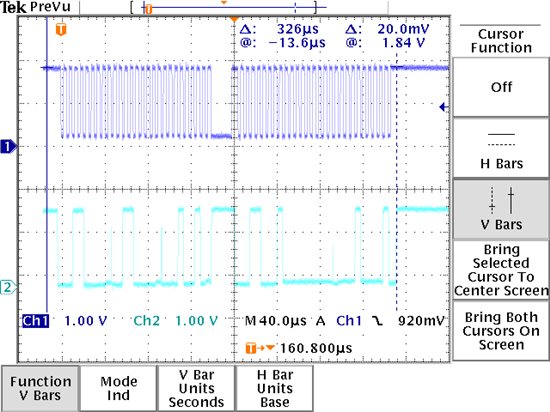Hi,
I have trouble using the I2C driver through the stream API. I use the I2C driver in pspdrivers_02_20_02_01.
Congifuration:
-Polled
-Master
-7-bits adress
-200 khz
-DMA disabled
If I do to consecutive stream_write to the same I2C slave everything works fine, but If do one stream_write to one I2C slave and one stream_write to another I2C slave the second failes. The return code from stream_write is 0 and Error_getCode(&eb) returns 0.
Is it only possible to communicate with one I2C slave with the I2C driver through the stream API?
Best regards,
Jonas


